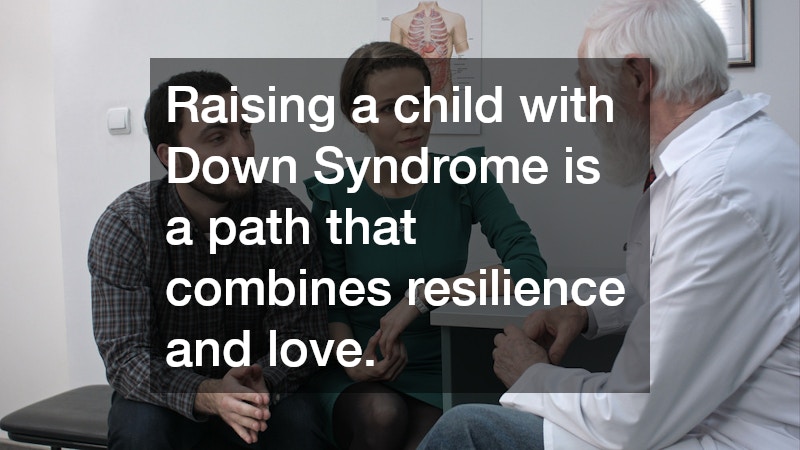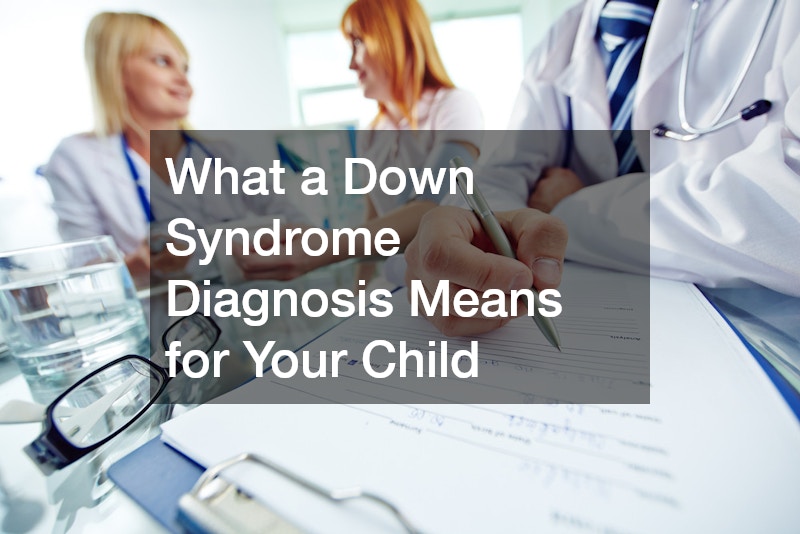Receiving a Down Syndrome diagnosis for your child can be an emotional and overwhelming experience, often accompanied by a mix of questions, fears, and hopes. For many parents and guardians, the initial news brings uncertainty, but it also opens the door to a unique and rewarding journey of growth, connection, and advocacy. Understanding what Down Syndrome means medically, developmentally, and socially is essential in preparing to support your child as effectively and compassionately as possible.
This article is designed to guide you through the key aspects of raising a child with Down Syndrome. From managing health concerns and supporting developmental milestones to encouraging social integration and finding the right resources, it offers a clear and compassionate overview tailored to new and experienced caregivers alike.
By gaining insight into what lies ahead and learning how to navigate common challenges, you’ll be better equipped to empower your child to lead a healthy, joyful, and fulfilling life.
Conclusion
What Are the Health Implications Associated with Down Syndrome?
Children with Down Syndrome face a variety of health challenges that require careful oversight and proactive management. One of the most significant health concerns includes congenital heart defects, which are present in approximately 40-50% of infants with Down Syndrome. Early screening and potential surgical interventions become crucial in managing these issues effectively.
Respiratory and hearing issues also commonly affect individuals with Down Syndrome. Recurrent upper respiratory infections can be managed with medical vigilance, while hearing problems might necessitate regular audiological assessments and interventions such as hearing aids to promote better communication and learning outcomes.
Additionally, there are potential concerns with thyroid function, vision problems, and a higher propensity for obesity due to lower metabolism rates. Regular medical evaluations and maintaining a balanced diet and active lifestyle are essential components in encouraging optimal health for children with Down Syndrome.
How Can Parents Support Development and Learning?
Supporting the development and learning of a child with Down Syndrome often requires a multi-faceted approach. Early intervention programs, involving speech, occupational, and physical therapies, play a critical role in enhancing the child’s abilities and helping them reach their developmental milestones.
Educational strategies tailored to a child’s specific needs can significantly aid in their learning. Utilizing visual aids, incorporating music, and adopting a consistent routine can improve focus and retention, catering to the child’s unique learning style.
Parents are encouraged to foster a stimulating environment that promotes curiosity and exploration. Engaging in interactive play, reading together, and providing opportunities for social interaction within educational settings helps build essential skills and confidence in children with Down Syndrome.
What Are the Social and Emotional Considerations?
Promoting social integration and addressing the emotional well-being of children with Down Syndrome is paramount. Encouraging peer interactions through inclusive school programs and community activities allows children to develop friendships and social skills.
Building a supportive network is equally important. Parents can connect with local support groups or online communities that offer a platform for sharing experiences, advice, and emotional support, reinforcing the notion that they are not alone in this journey.
Emotional resilience in children with Down Syndrome can be fostered through positive reinforcement and celebrating small achievements. By acknowledging their abilities and promoting independence, parents can help bolster their child’s confidence and self-esteem, contributing to a happier, more fulfilling life experience.
What Resources and Support Systems Are Available?
Numerous resources and support systems are available to families navigating life with a child with Down Syndrome. National organizations such as the National Down Syndrome Society (NDSS) and the Down Syndrome Association provide a wealth of information, advocacy, and support services tailored to individual family needs.
Community programs often offer a range of activities and workshops designed to support both the child and their family. Local support groups, therapy providers, and specialized educational consultants are valuable resources for custom guidance and support.
Financial assistance may also be available through governmental and non-governmental programs offering subsidies for medical treatments, therapies, and educational services. Parents are encouraged to explore these options to alleviate some of the financial burdens associated with raising a child with Down Syndrome.
What Does the Future Look Like for a Child with Down Syndrome?
The future for individuals with Down Syndrome is increasingly optimistic, thanks to medical advancements and supportive societal changes. Growing awareness and acceptance have led to increased opportunities in education, employment, and independent living, enabling many to lead fulfilling lives.
Research continues to drive improvements in medical care and therapies, enhancing quality of life and addressing the specific needs of individuals with Down Syndrome. These advancements expand opportunities for them to explore personal interests and talents, fostering a sense of capability and purpose.
While challenges remain, the support of family, community, and societal progression paints a hopeful future. By advocating for continued understanding and inclusion, parents and guardians lay the groundwork for a world where their children with Down Syndrome can thrive and achieve their full potential.
Raising a child with Down Syndrome is a path that combines resilience, love, advocacy, and continual learning. While no two experiences are the same, the foundation of success lies in proactive healthcare, tailored developmental support, strong social networks, and access to comprehensive resources. With a positive mindset and an informed approach, families can nurture their child’s strengths and build a life filled with meaningful milestones.


